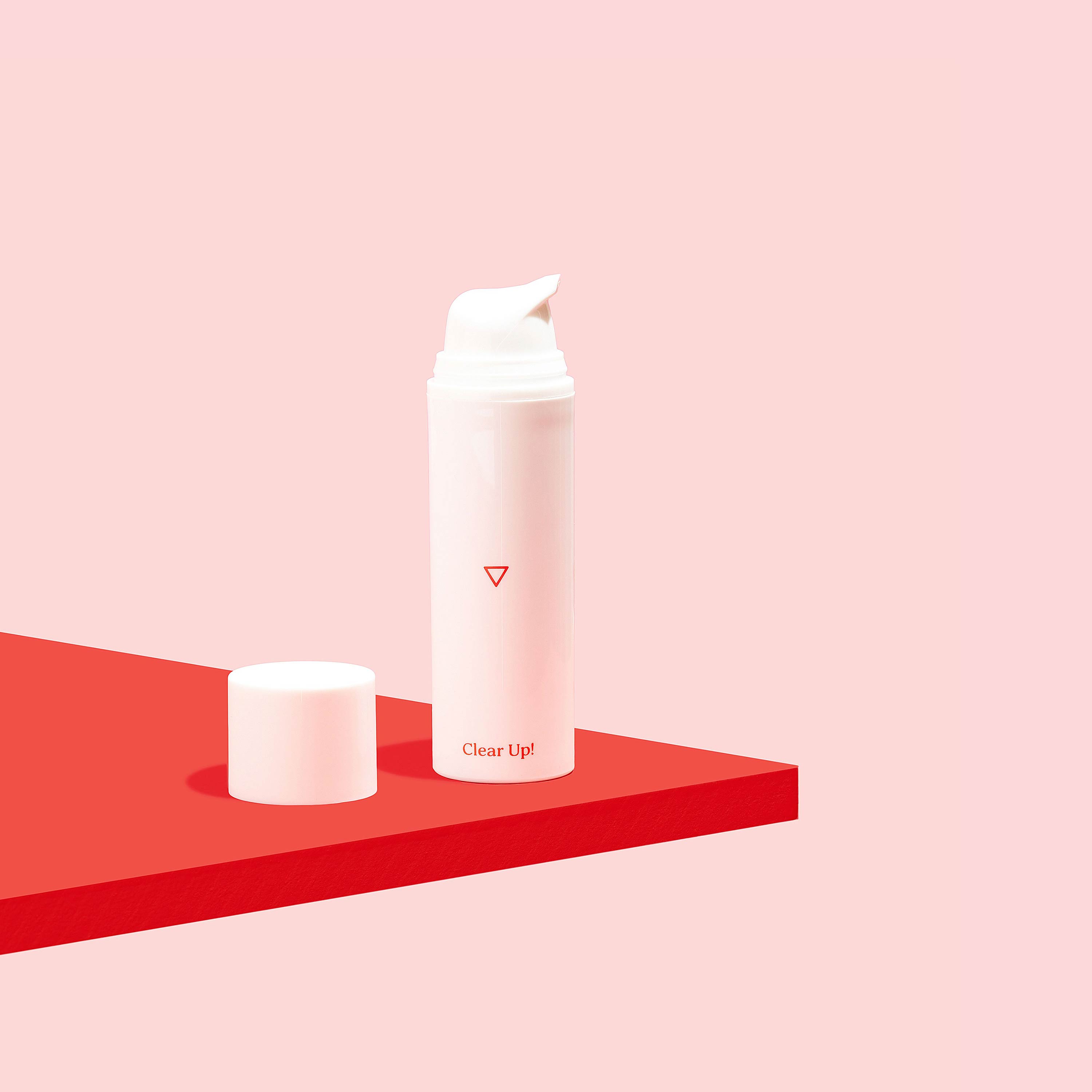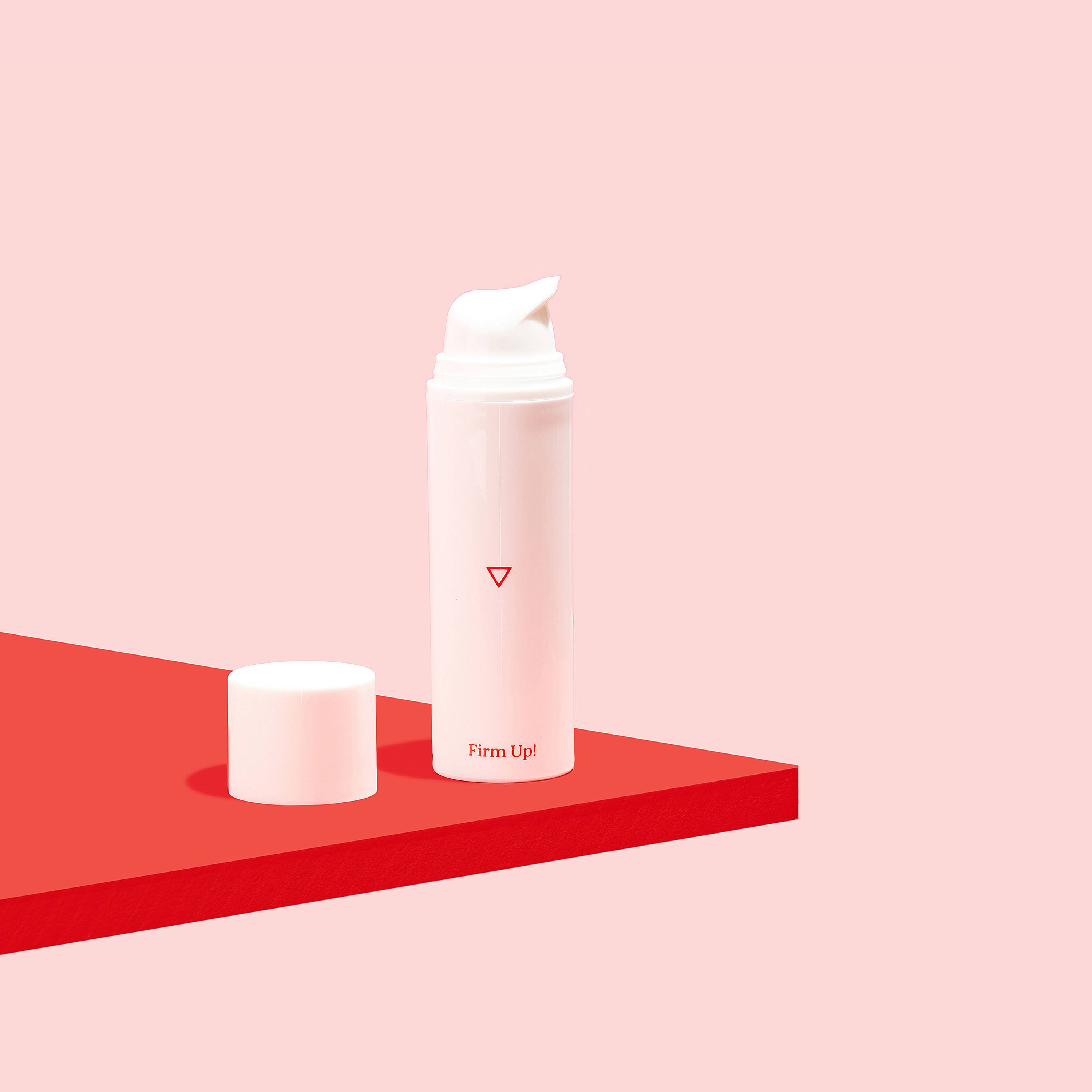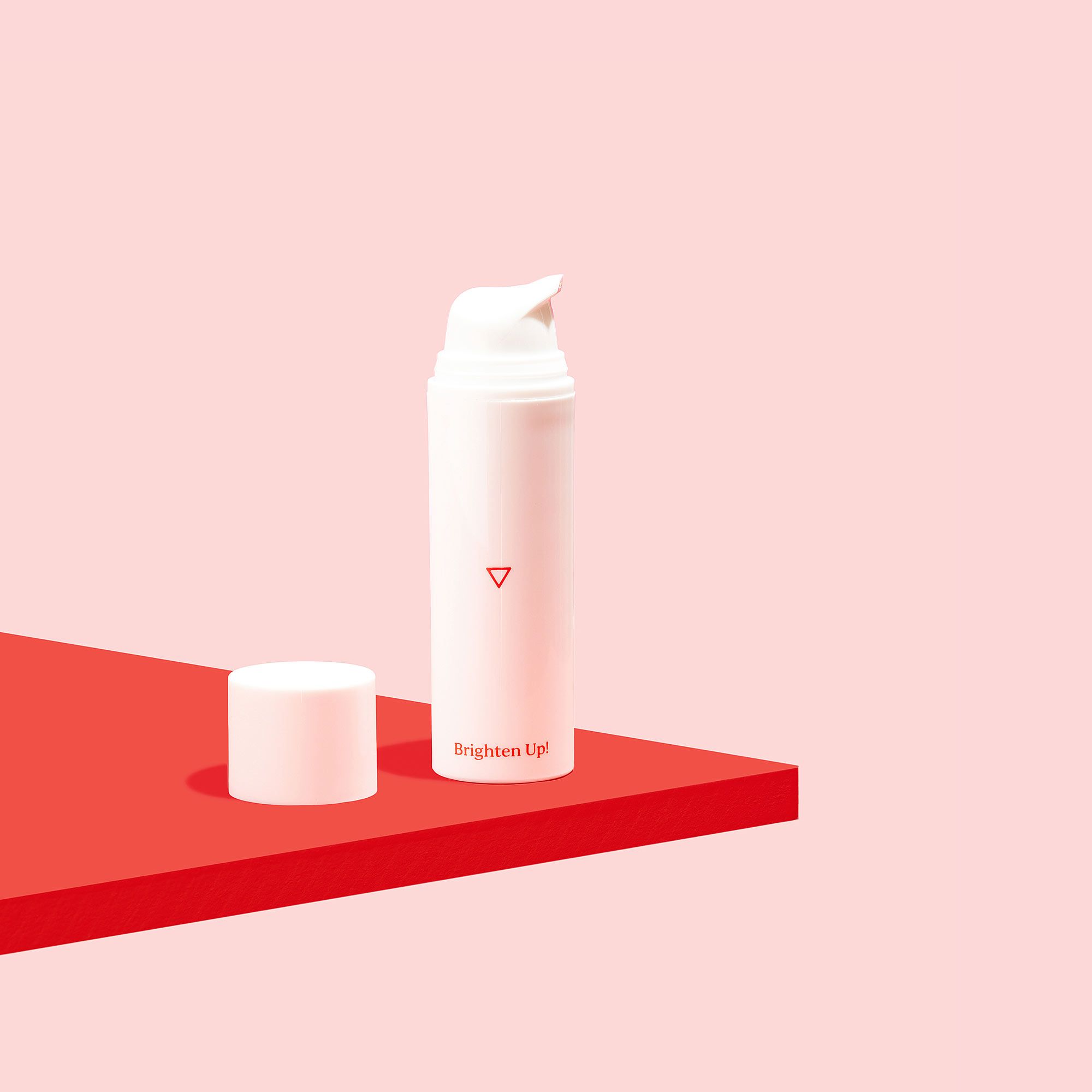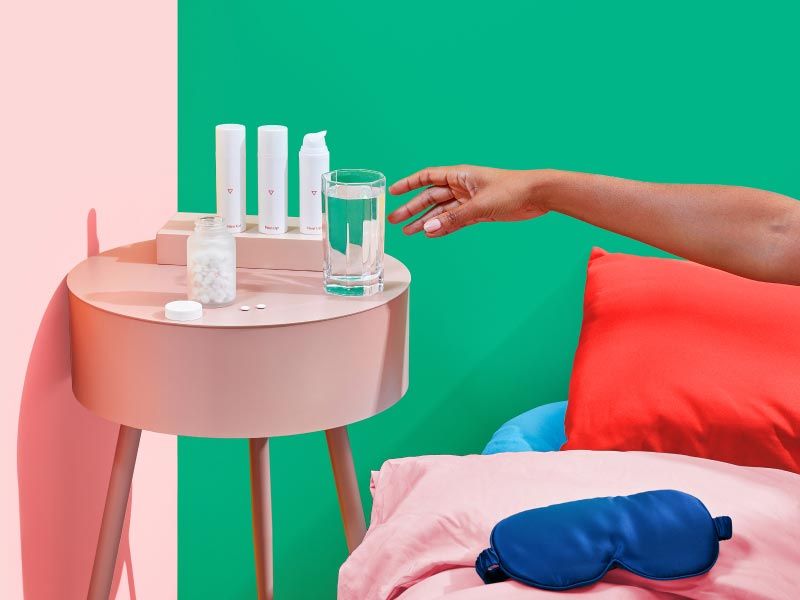
What is Hormonal Acne
and How to Get Rid of It
By Simona Byler
January 30, 2025
Raise your hand if you’ve ever struggled with persistent, stubborn acne. 🤚🏽✌🏼☝🏽 Acne is a skin concern that everyone has dealt with at some point in their lives (and if you know someone who has never had a pimple, we’d love to meet them). But, even though it affects everyone, not all acne is created equal. And if you struggle with adult hormonal acne, you know this better than anyone.
Hormonal acne is a bit of a buzzword these days and, as such, brings a lot of confusion and questions along with it. So, if you’ve ever wondered “What is hormonal acne, exactly?” then keep on reading! We’re here to answer exactly that, plus talk about who it affects, treatment options, prevention techniques, and more.
What is hormonal acne?
Alright, let’s start off with the basics. Hormonal acne is any acne caused by changes or fluctuations in your hormones. The most common time to get hormonal acne is during puberty–when you have some pretty massive hormonal changes going on–with up to 95 percent of teenagers experiencing acne.
So, yes, the acne teenagers get is technically hormonal. But, the term “hormonal acne” is usually used to mean something a little bit different: adult acne. Adults of any gender can get hormonal acne, but it’s more common in women than in men. And how common is it? Different studies have found that anywhere between 12 and 54 percent of adult women deal with acne.
The fact that women frequently experience hormonal acne isn’t that surprising, considering the hormonal changes we’re constantly going through (fun!). You may notice more acne during times of hormonal change, including:
- Before your period
- Leading up to menopause
- During pregnancy
- While using progestin-only birth control

Oral Spironolactone
Starting at $24
Prescription solution for women struggling with acne, hair loss, and excess facial hair.

Clear Up! Prescription Acne Cream (Clindamycin + Retin A)
Starting at $75
Tretinoin 0.04%, Clindamycin 1.25%, Niacinamide 4% Prescription treatment for inflamed and stubborn acne.

Firm Up! Wrinkle Cream | Tretinoin (.04%)
Starting at $75
Tretinoin 0.04%, Azelaic Acid 5%, Niacinamide 4% Prescription treatment for wrinkles, fine lines, and other signs of aging.

Brighten Up! Hydroquinone Face Cream (5%)
$90
Prescription treatment for dark spots and melasma on the face.
What does hormonal acne look like?
So, now we know that adult women are frequent sufferers of hormonal acne. But what do these types of breakouts look like? While it can look different from person to person, characteristics of hormonal acne for adult women often include:
- Breakouts around the lower cheeks, jaw, chin, and neck
- Soreness around the affected area
- Deep or inflamed papules
Hormonal acne can range from mild to severe, lead to scarring or hyperpigmentation, and is often more resistant to topical creams and medications. If you’re currently dealing with frustrating and stubborn acne, know that you’re not alone–and that treatment options are available.
What causes hormonal acne?
As the name suggests, hormonal acne is caused by an imbalance or changes in your hormones. Certain hormonal changes can affect how much sebum–aka oil–your skin produces. And, when you have too much oil on your skin, it can clog your pores and make you break out. Let’s look at some of the hormonal imbalances that cause acne:
- High androgen levels: When you have high levels of androgens or “male hormones” like testosterone, it can make your skin produce more oil, cause inflammation, and lead to acne. This can happen before your period, before menopause, during pregnancy, or while taking progestin-only birth control.
- Polycystic ovarian syndrome (PCOS): PCOS is a hormonal disorder that can cause high levels of androgens and associated skin conditions–including acne.
- Stress and cortisol levels: When you’re stressed, your cortisol levels increase along with other hormones. This can stimulate your skin’s oil glands and cause inflammation.
- Genetics: Acne isn’t inherited, but your genes majorly influence whether or not you get hormonal acne. Genetics affect the size and number of your skin’s oil glands and how hormones act in your body.
But, hormonal changes aren’t the only thing that causes acne in adult women! Other contributing factors can include:
- Diet
- Medication
- Cosmetics
- Chronic inflammation
- Tobacco use
How to get rid of hormonal acne
Now that we’ve covered the basics, let’s get on to the good stuff. And by that, we mean talking about how to get rid of hormonal acne, of course! Hormonal acne in adult women can be notoriously challenging to treat, with those aged 25 and older experiencing higher rates of treatment failure. That’s why it’s essential to approach hormonal acne treatment holistically–and with a touch of patience.
Topical treatments for hormonal acne
There are a few tried and true topical treatments that support healthy skin by helping to manage oil production, just what skin prone to hormonal acne needs. These creams and gels can be used on their own, or your healthcare provider may combine them with other acne-fighting options, depending on your situation. Topical treatments include:
- Retinoids: Prescription retinoid creams, like tretinoin, help keep your follicles from getting blocked and causing inflammation and breakouts. Using retinoids alone can help women with mild acne. For more severe acne, your healthcare provider may recommend retinoids alongside other treatments.
- Antibiotic creams: Antibiotics, like clindamycin, can help treat acne by reducing inflammation and fighting bacteria. Wisp’s Clear Up! Acne Cream combines clindamycin cream and tretinoin to give your skin a prescription boost compared to drugstore options.
- Benzoyl peroxide: This ingredient avoids concerns about antibiotic resistance, while demonstrating bactericidal (bacteria-killing) effects against acne bacteria.
- Azelaic acid: Available in a cream or gel, azelaic acid can help adult women with acne and hyperpigmentation.
Birth control for acne
Now, this might sound wild, but one of the most essential ways to treat hormonal acne is by targeting the hormones that cause it. And, one way to target those pesky hormones is with combined oral contraceptives–aka birth control pills!
Birth control pills that contain both estrogen and progestin are highly effective at treating adult acne in women. Why? Because they help balance your androgen levels–the hormones that can cause excess oil and acne. The three birth control pills that are FDA-approved for acne management are:
- Ortho Tri-Cyclen
- Yaz
- Estrostep
Besides these three options, your healthcare provider may prescribe you a different birth control pill to help manage acne. And if taking a daily pill isn’t on your to-do list, the vaginal ring can also help! Vaginal rings are inserted monthly and have also been shown to help with hormonal acne.
Spironolactone for acne
If you’ve read this far and are thinking, “Yeah, yeah, I’ve tried all that and still have stubborn acne” then we’ve got one more option to talk about: spironolactone. Spironolactone is a powerful hormonal acne treatment option for women whose acne is resistant to standard treatments.
Spironolactone is a medication that blocks your body’s androgen receptors, leading to a significant reduction in oil production. Studies have shown this medication can improve acne for a majority of women, and it can be especially helpful for those with hormonal disorders like PCOS.
Even though spironolactone isn’t FDA-approved as a hormonal acne treatment, it’s been prescribed off-label for acne for quite some time. If you’re interested in speaking with a healthcare provider about getting a spironolactone prescription for acne, reach out to a Wisp provider today.
What else can I do to treat hormonal acne?
Prescription creams, birth control pills, and medications like spironolactone can all help treat hormonal acne depending on your situation. If you’re looking to go the extra mile to get rid of acne, lifestyle changes may also help! Reducing stress, eating a balanced diet, and being picky about your cosmetics can all play an important acne-fighting role.
If you’re struggling to get rid of hormonal acne, know that you’re not the only one! Acne is frustrating and stubborn, and it affects just about everyone. But, that doesn’t mean you have to suffer through it—treatment options are available. Reach out to a Wisp provider to discover your options today.


